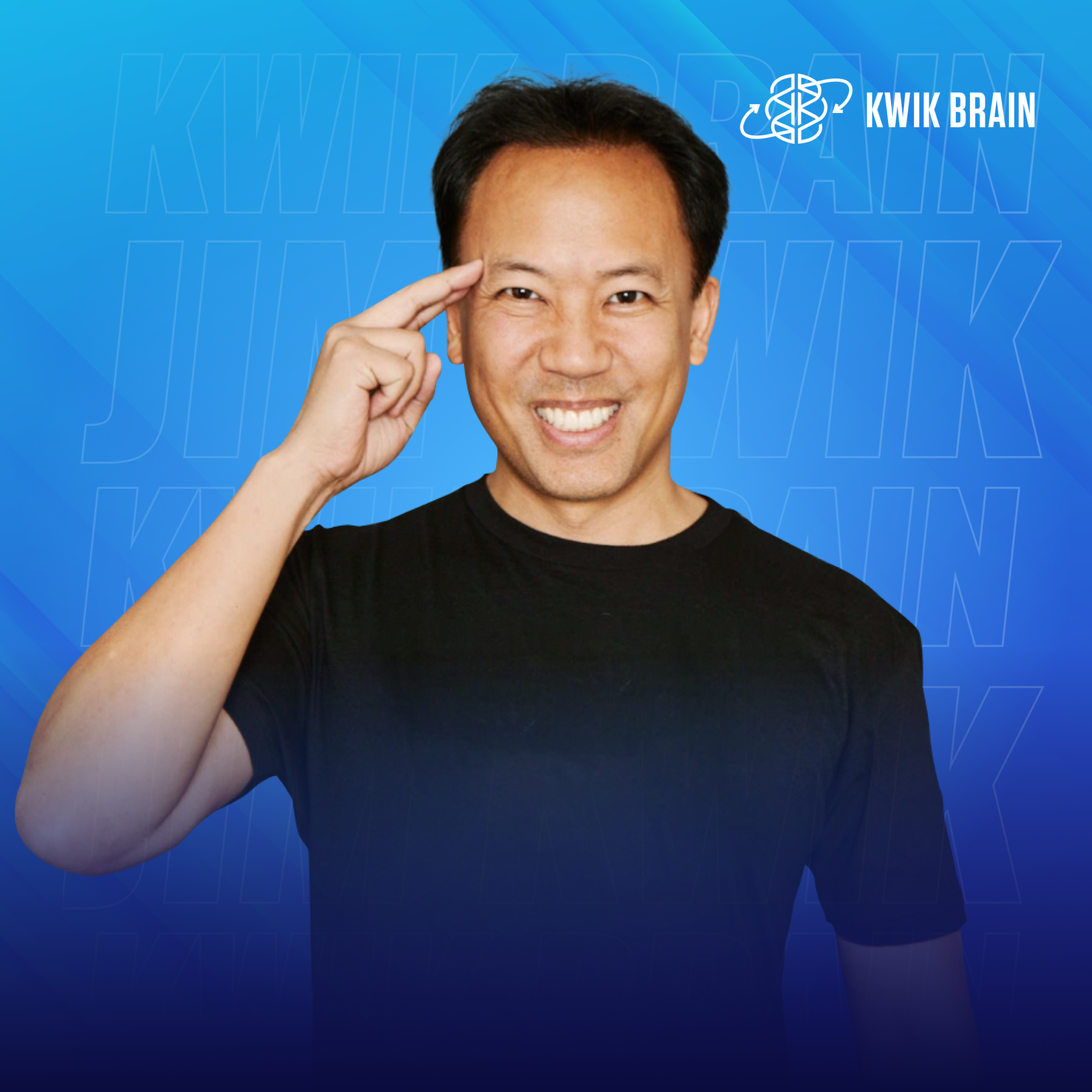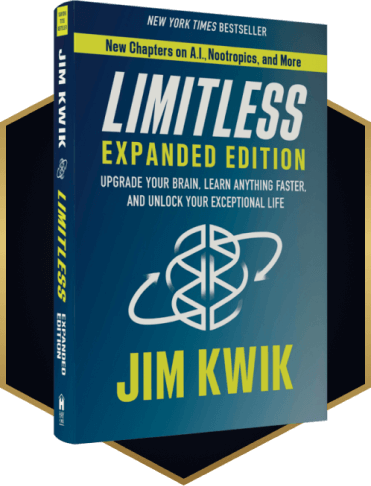Speed Study Secrets (Not Taught In School)
What’s the best way to study?
In this episode, I teach you 4 things to do — and 4 things NOT to do — right now to make the most of your study time. I reveal my secrets to cut studying time while getting better results by studying smarter, not just harder. Whether you’re a student in school or just of life, learn how to study with ease, enjoyment, and effectiveness.
Join Our Facebook Community: KwikBrain.com
Become A Kwik Student: KwikStudent.com
This content contains affiliate links. If you use these links to purchase something, we may earn a commission. Thanks.

Jim Kwik
People say that you should study smarter, not harder. But how do you learn to do that? After all, school teaches you what to study — not how to study. These are my favorite study tips based in neuroscience. I teach more study tips in my bestselling Kwik Student program, a 16-hour bootcamp used by students in 150+ countries to crack the code to higher test scores and maximum return on studying time.
4 Things to Stop Immediately for Effective Studying
Stop multitasking
- Multitasking is a myth. Task-switching is more accurate: you might believe you’re doing 2 to 3 things at once, but you’re actually switching between tasks.
- Task-switching takes more time, is less productive, and causes more errors. Every time you switch tasks, you need to regain focus and flow – which takes from 5 to 20 minutes.
- The University of London found that multitasking can lower your IQ up to 15 points – the same as if you’d stayed up all night.
Eliminate distractions
- Focus by turning your phone off, on Airplane Mode, or moving it into another room.
- Use apps like Freedom or FocusMe to block distracting websites – or all websites except the one you need.
- For more tips on avoiding distractions, reference Kwik Brain 018: Fast Focus & Productivity with Julia Roy.
Stop cramming
- Many people don’t study for days or weeks before pulling an all-nighter or studying for 6 – 7 hours.
- Sleep is essential because that’s where you consolidate short- to long-term memory.
- It’s crucial to take breaks when you study.
- Your attention and retention diminish after 25 – 30 minutes.
- The Pomodoro Technique asks you to work for 25 – 30 minutes, then take a 2 – 5 minute break to stretch, breathe, and hydrate.
- As your body moves, your brain groves.
- Taking breaks takes advantage of 2 important memory principles: primacy and recency.
- Primacy says you tend to remember things in the beginning.
- Recency says you tend to remember things near the end or those that are recent.
- The more breaks you take, the more beginnings and ends you have.
Stop akrasia
- Akrasia is the state of acting against your own better judgment.
- Follow Pareto’s Principle: focus on the 20% that gives you 80% of the rewards.
- Apps like StickK or Beeminder will help you keep to your commitments.
- Do the things you need to do that are holding you back
- For more tips on stopping akrasia, listen to Kwik Brain 010: How to Stop Procrastinating.
4 Things to Start Immediately for Effective Studying
Practice Active Recall
- When you re-read textbook chapters, you confuse yourself into thinking you can recall the information – when really you only recognize it.
- Recognition requires a trigger which you won’t have on a test. Recollection is possible without a trigger.
- For active recall, close the book, quiz yourself, and recall/recite all you can remember.
Do Spaced Repetition
- Spacing out your studying into intervals helps you take the information from short to long-term memory.
- Start by reviewing it an hour later, then a day later, a week later, and a few weeks later.
- You can digitize this process with a software program called Anki.
- Spaced repetition makes the process of learning anything – from a language to geography – very simple and straightforward.
Use Your Sense of Smell
- Your environment gets anchored to the information you’re learning.
- It’s better to study where you’ll take the exam, but that’s not always possible – so take the environment with you.
- Your sense of smell is connected to memory in a very powerful way.
- Use an unfamiliar scent while studying, and use it again when you need to take an exam. Try using essential oils, chewing gum, perfume, cologne, or lip balm.
- Rosemary and peppermint are especially good for your memory and focus.
Listen to Music
- The Stanford School of Medicine found that playing classical music helps you make predictions and pay better attention.
- Listen to Baroque music, which is at 60 BPM and harmonizes with your resting heart rate.
- Baroque music puts your brainwaves into an alpha state so you are relaxed and aware.
- Music also improves your mood and outlook.
BONUS: 5. Sharpen Your Saw
- In The 7 Habits of Highly Effective People, the final habit is to sharpen the saw.
- Metaphorically, if you need to chop wood, you want to start by sharpening a dull blade.
Go Deeper With These Episodes
- Kwik Brain 001: How to Learn ANYTHING Faster
- Kwik Brain 003: 10 Keys to Unlock Optimal Brain Health
- Kwik Brain 008: A Fast and Fun Way to Recall Lots of Information
- Kwik Brain 015: How to Create a New Habit with Dr. Fogg
- Kwik Brain 007: How to Read Faster
- Kwik Brain 013: How to Take Notes for Rapid Recall
Don’t forget to like and subscribe so you never miss an episode!







